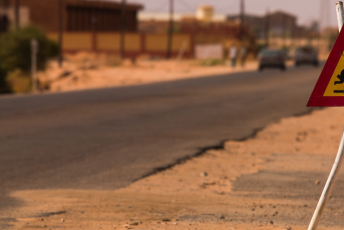The International Organization for Migration (IOM) says that the Eastern Route that is controlled by smugglers, is the busiest migration route in the world registering an average of 138 000 people in 2019 alone. This Route spans from countries in the Horn of Africa to Yemen and in most cases onwards to Saudi Arabia and other Gulf countries.
Migrants prefer using the Eastern Route as the smuggling fee costs are comparably less than other routes from the Horn. For example, an Eastern Route migrant destined to Saudi Arabia pays a smuggling fee of US$795 compared to a Southern Route one to South Africa who pays a smuggling fee of US$3 500.
However, this year’s measures to stop the spread of COVID-19, and increased infection rates have seen the number of migrants using Africa’s Eastern Route, most of whom are smuggled out through the Horn of Africa, drop dramatically. In January 2020, 11 101 Eastern Route migrants arrived in Yemen – a figure that tallies with the monthly average of 11 500 people in 2019. Yet in March 2020, only 7 223 used the Eastern Route, dropping down to 1 725 in April.
In May only 1 195 migrants crossed over to Yemen – an overall 94% decrease compared to May 2019. This large drop in numbers shows that countries’ measures to address the spread of COVID-19 have disrupted the smuggling market in the region.
This disruption has not only resulted in a drop in numbers since the outbreak of COVID-19 in March 2020 in the Horn countries, but smugglers have left migrants stranded along the Eastern Route. This is possibly for fear of infection due to the high person-to-person transmission rate of the disease. Whatever the reason though, migrants are effectively trapped. They can move neither forward nor return back along the route as lockdown border restrictions prevent this.
Djibouti and Somalia, both transit countries on the Eastern Route, have resorted to a raft of measures intended to slow the spread of the virus. These include border closures, lockdowns and curfews that prevent further migrants from transiting their countries. In Obock, a sea crossing town in Djibouti, the IOM has set-up a Migrant Response Centre that assists stranded migrants who have been abandoned by the smugglers by offering them with food, shelter and psycho-social support.
IOM is also working with the government of Djibouti to repatriate the stranded migrants back to their countries. However, on 8 May, Ethiopian Prime Minister Abiy Ahmed Ali stated that his government would not be willing to accept back smuggled migrants out of Ethiopia. He further stated that it would be difficult for his government to know whether the repatriated migrants were indeed Ethiopians – this is despite Ethiopians making up most of the smuggled migrants who use the Eastern Route.
How these decisions and reactions affect criminal networks’ profits is an unfolding situation. ENACT’s Africa Organised Crime Index ranks human smuggling as the most prevalent criminal market in all four Horn of Africa countries. The smuggling market in this region is complex, involving both criminal entrepreneurs and state-embedded actors.
Apart from the drivers of irregular migration, such as lack of livelihood opportunities and conflict, state actors often collude with criminals and are key enablers of this criminal enterprise.
Border closures and siloed responses have helped limit the spread of COVID-19 in the Horn countries and also dwindle migrant numbers using the Eastern Route. But these measures are temporary at best and aren’t enough to deter migrants willing to take high risks to leave their countries.
This is because there is an almost exclusive emphasis on the criminality that migration attracts, rather than the conditions in the region that drive migration and enable smuggling.
A shift to a political approach while also addressing the criminal implications of these movements would foster countries engagement and commitment. This would acknowledge people’s lack of choices throughout their journeys. This dearth of choices is driven by structural factors that cannot be resolved without a deeply political engagement. Such an engagement would directly address the structural factors and punitive state policies on irregular migration that benefit smugglers thus allowing human smuggling to continue.
Coordination efforts to manage the prevalence of COVID-19 offers an opportunity for states in the region to focus on building joint efforts, and thus curbing cross-border crimes – the priority being people smuggling.
Mohamed Daghar, Researcher, ENACT project, ISS







